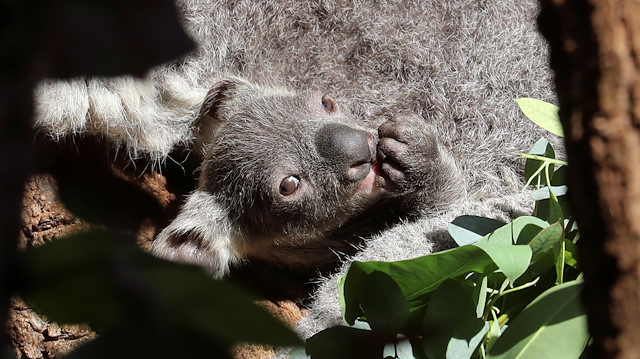
Funding comes following devastating bushfires that killed, injured thousands of koalas, destroyed habitats
The Australian government on Monday announced an $18 million package to protect koalas around the country.
In a statement, Minister for Environment Sussan Ley said that under the new strategy a national audit of iconic marsupial's populations would be a key component of a $18 million package to help protect the species endemic to Australia.
"The landmark koala package will include funding for health research and medical support, as well as the restoration of key habitat sites through on-ground actions such as revegetation, weed control, fencing, managed grazing and tailored fire planning and implementation," Ley said.
Launching the initiative at Sydney's Taronga Zoo, she said the koala audit would help direct commonwealth, state and private funding to where they would achieve the most good for the species.
"For all our focus on koalas, scientists are telling us that there is a serious lack of data about where populations actually are, how they are faring and the best ways to help them recover after the devastating bushfires," she said.
According to the minister, it will be mandatory for all state's governments to report on koala populations and conservation strategies on an annual basis.
Under the new move, $2 million will be invested in koala health research and veterinary support, tackling challenges such as Chlamydia and other diseases that are second only to car strikes in the normal causes of koala mortality recorded in veterinary hospitals.
The remaining $14 million will help restore impacted koala habitat in both bushfire and non-bushfire affected areas and provide targeted funding for koala habitats in northern New South Wales and southern Queensland.
Meanwhile, the threatened species commissioner, Sally Box, said this funding boost came at a critical time for the koalas, following the devastating bushfires which killed and injured thousands.
"Today's announcement will support the conservation community to respond to the devastating 2019-20 summer bushfire season which impacted important habitat for koalas and other threatened species right across Australia," said Box.
*Writing by Islamuddin Sajid


